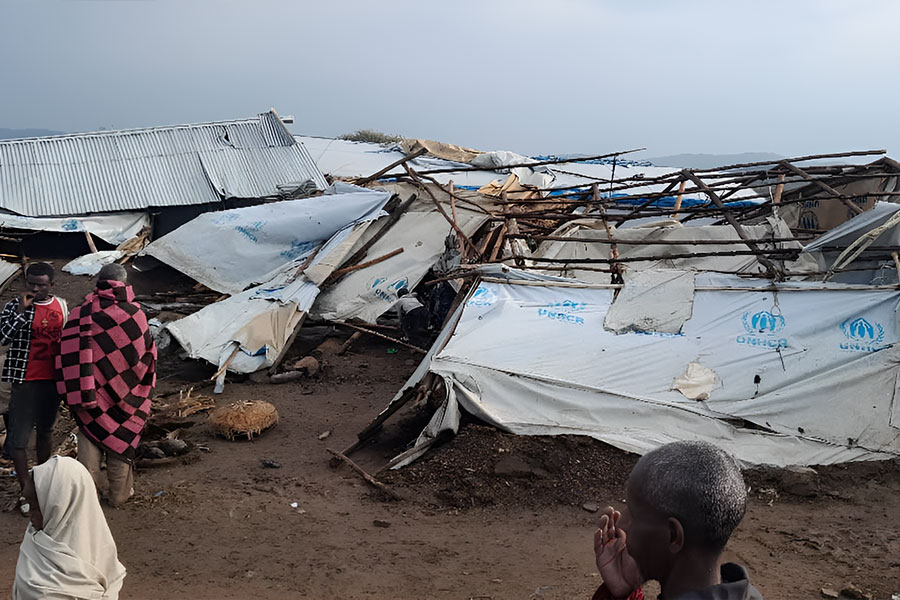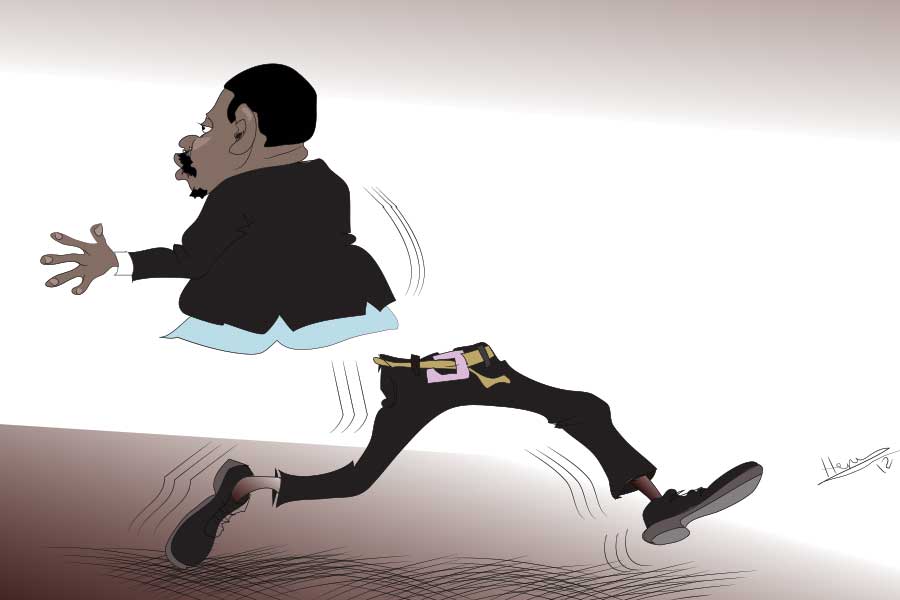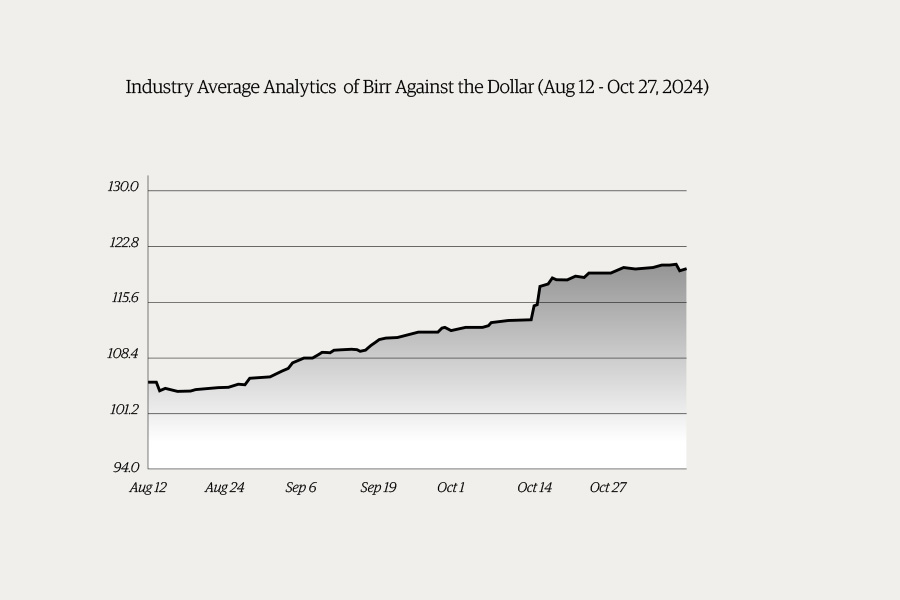
Fortune News | Sep 10,2021
A new agriculture policy, spearheaded by Minister of Agriculture Girma Amente (PhD), has made its way to Parliament, signalling a shift towards a market-driven approach aimed at revamping the sector. Girma said empowering smallholder farmers in terms of land rights and access to financing is crucial for boosting productivity. His proposal to allow farmers to use their land as collateral for loans is seen by officials as a step towards addressing this longstanding barrier.
However, not everyone is convinced of the policy's potential success. Agricultural economist Abebe Dagnaw (PhD) warns that past policy failures stress the need for effective implementation. He suggests a reformed land policy and a greater focus on horticulture production as alternatives to the current cereal-centric approach.
"Implementation is where good policy goes to die," he told Fortune.
Despite these concerns, the pending policy, approved by the Council of Ministers two weeks ago, aims to address land rights, supply chain improvements, and modernisation. Tesfaye Mengiste (PhD), head of the policy unit at the Ministry, believes that this shift aligns with broader economic reforms and will address long-standing issues in the sector.
Key to the policy's success, according to Tesfaye, are investments in capacity building, mechanisation, and improved seed supply. He said cluster farming and irrigation-led practices will boost productivity, with wheat cultivation singled out as a strategic focus due to its high yield capacity. He said improved seed supply is one reason that productivity has been halved in some areas. He foresees massive improvements in food production if they can be rationed equitably.
"Farmers are trapped in a subsistence-level production," Tesfaye said.
Livestock and crop insurance is also part of the reforms. With around 226,000hct covered in banana and maize plantations reliant on seasonal rainfall and over 50,000 smallholder farmers struggling to access loans and improved seeds, Gambella Regional State's fertile grounds encapsulate the difficulty.
Bulcha Bilo, a farmer from Dugda Woreda in Oromia Regional State, is struggling to recover his losses from wheat production as crows keep ravaging his four-hectare farm. He attempted to access credit from a nearby bank by leveraging his 20 dairy cattle as collateral to no avail.
"There is neither insurance nor loans," Bulcha told Fortune.
Nearly 200Km away in Yabello wereda in the Borena Zone, drought has ransacked the livestock population. Kare Durish, head of the Agricultural Bureau, said four straight dry seasons have wiped out most of the cattle in the area. According to the official, few of the agricultural land mass has access to irrigation channels.
"Irrigation has been limited," he told Fortune.
With nearly 95pc of the country's cultivated land managed by smallholder farmers who primarily grow teff, maize, and wheat, food security has been largely out of reach. Agriculture contributed nearly 32pc to the country's GDP last year, accounting for 80pc of the 3.6 billion dollar export revenues.
Ojulu Lual, head of the Gambella Agriculture Bureau, disclosed that 60 commercial farmers in the region face foreclosures due to unpaid loans. In contrast, thousands of smallholder farmers struggle for financial and market access. He said wheat farming in the Majang Zone was limited to 55hct because of improved seed shortages and unreliable water from two irrigation dams.
"There are systemic issues," Ojulu told Fortune.
PUBLISHED ON
May 04,2024 [ VOL
25 , NO
1253]

Fortune News | Sep 10,2021

Fortune News | Oct 03,2020

Verbatim | Nov 29,2020

Agenda | Aug 23,2025

Radar |

Editorial | Oct 19,2019

Money Market Watch | Nov 09,2024

Radar | May 12,2024

Radar | Oct 31,2020

Featured | Sep 07,2025

Dec 22 , 2024 . By TIZITA SHEWAFERAW
Charged with transforming colossal state-owned enterprises into modern and competitiv...

Aug 18 , 2024 . By AKSAH ITALO
Although predictable Yonas Zerihun's job in the ride-hailing service is not immune to...

Jul 28 , 2024 . By TIZITA SHEWAFERAW
Unhabitual, perhaps too many, Samuel Gebreyohannes, 38, used to occasionally enjoy a couple of beers at breakfast. However, he recently swit...

Jul 13 , 2024 . By AKSAH ITALO
Investors who rely on tractors, trucks, and field vehicles for commuting, transporting commodities, and f...

Nov 1 , 2025
The National Bank of Ethiopia (NBE) issued a statement two weeks ago that appeared to...

Oct 25 , 2025
The regulatory machinery is on overdrive. In only two years, no fewer than 35 new pro...

Oct 18 , 2025
The political establishment, notably the ruling party and its top brass, has become p...

Oct 11 , 2025
Ladislas Farago, a roving Associated Press (AP) correspondent, arrived in Ethiopia in...